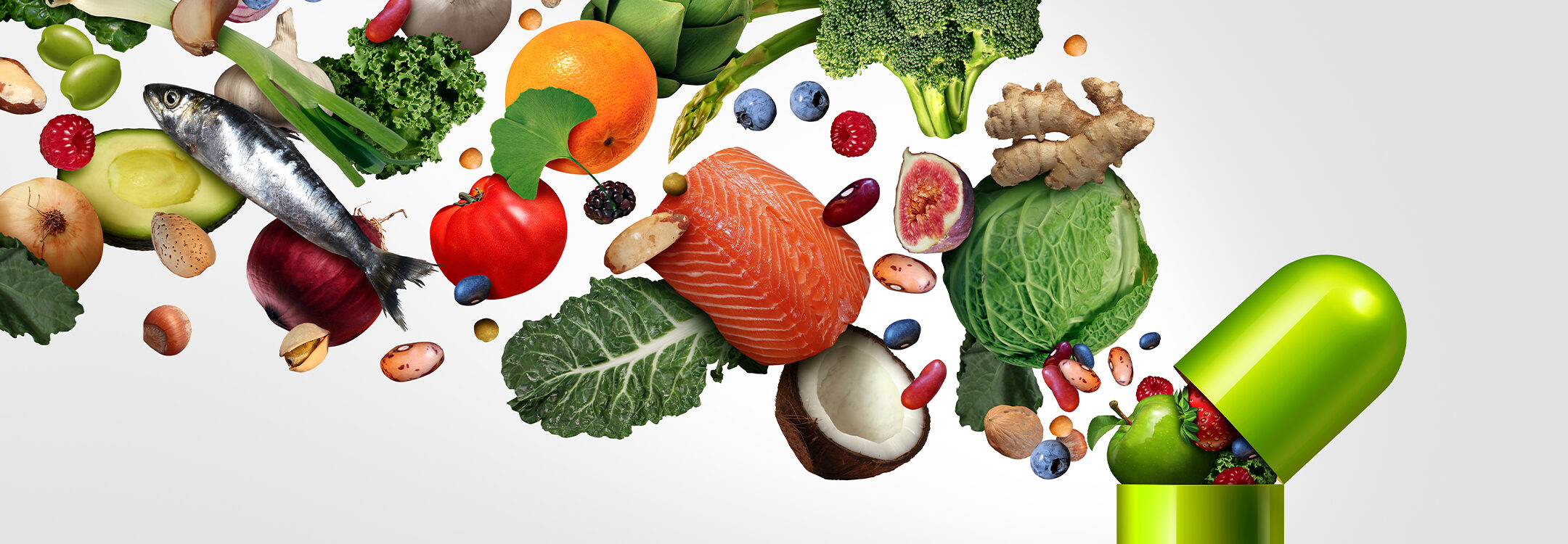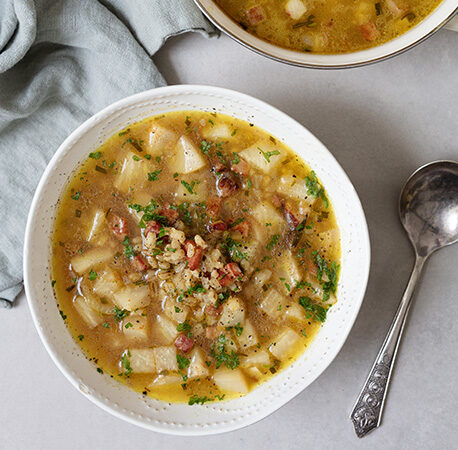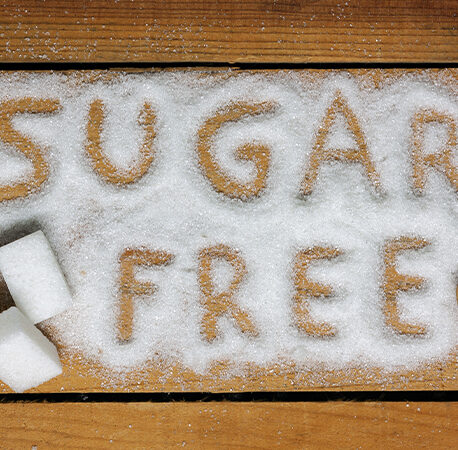Grains
6 servings per day, at least half of which should be whole-grain
1 slice of bread
30g dry cereal
1/2 cup cooked rice, pasta, or cereal (about the size of a tennis ball)
Fruit and vegetables
5-7 servings per day in a variety of types and colours
1 cup of leafy vegetables, e.g. spinach (about the size of a small fist)
110g chopped cooked vegetables
220g chopped raw vegetables
1 medium fruit (about the size of a tennis ball)
4 tbsp dried fruit
90g chopped fruit (fresh, frozen or canned)
120ml fruit juice
While juice does count towards your portions, beware – it won’t provide you with the fibre content of whole fruit. Fibre is crucial for slowing the absorption of the fruit’s sugar and keeping its glycemic index low. This may be why a high intake of juice increases the risk of diabetes and has been linked to childhood obesity.
Dairy products
2-3 servings per day
250ml milk
250g low-fat (or 125g full-fat) yoghurt
45g cheese (about the size of one domino)
Lean meats, poultry and seafood
85-170g (cooked) per day
85g cooked meat (about the size of a computer mouse or deck of cards)
85g grilled fish
Fats and oils
2 servings per day
1 tsp butter
1 tbsp mayonnaise
1 tsp vegetable, rapeseed or olive oil
1 tbsp salad dressing
Nuts, seeds and legumes
3-4 servings per week
45g nuts (or 30g almonds)
2 tbsp peanut butter
2 tbsp seeds
100g dried beans
- summer events
- small business
- gut health
- OATLY
- healthy
- Crudo
- top tips
- All Together Now
- fridge cake
- Events Waterford
- food festival
- Events Ireland
- me auld flower
- news
- dublin
- events Dublin
- dublin festival
- Home-Cooking
- food and drink festival
- online cooking course
- festival line-up
- cooking
- Summer festival
- eco-friendly
- Events
- cosy
- Festivals Ireland
- wine
- Body & Soul
- grapes
- music festival
- south africa






You have to be signed in to comment this post.